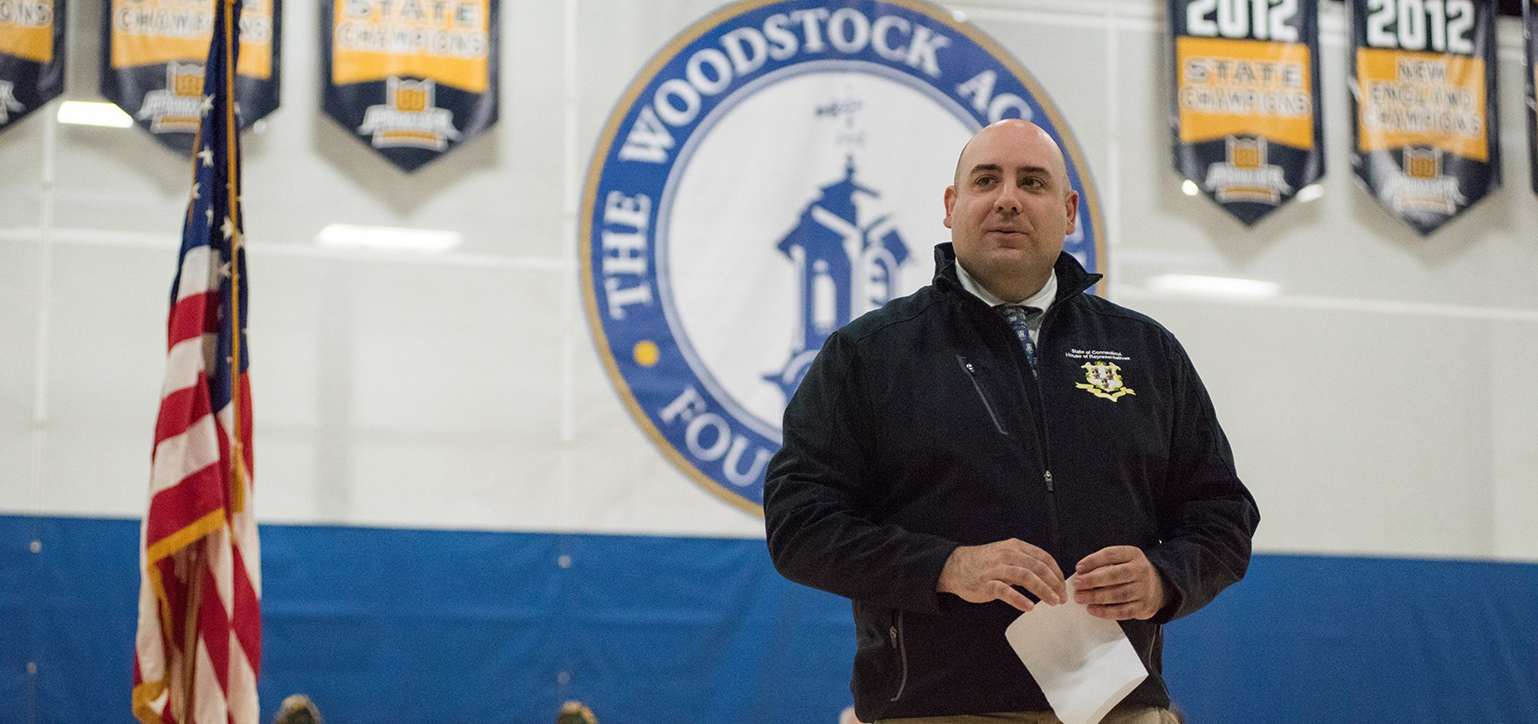
Dear Friends and Neighbors,
Now that the 2018 legislative session has ended, I wanted to take a moment and reach out with some important highlights from the state capitol. This was a “short” session that ran from the first week of February until the second week of May.
The budget featured prominently and we had to come up with solutions within a tight time frame. However, I was unwilling to agree to a partisan budget and instead worked to help facilitate a final budget that was developed jointly with Republicans and Democrats. The resulting bipartisan budget funded our local school and maintained the fiscal reforms that were agreed to last year.
For the second year in a row, an increase in the income tax, sales tax or a supplemental tax on tires, phones, and restaurants were successfully blocked. I am also happy to have stopped legislation that would have put our region at an economic disadvantage.
During my first term, I have sought bipartisan solutions to our real fiscal problems. My votes during the budget process forced leadership from both sides to come to the table and work together on many issues.
I am pleased this approach has resulted in the legislature taking important steps to change the direction of the State of Connecticut.
Thank you,

Pat Boyd
Supporting Small Businesses
Small businesses are the backbone of our economy. In an effort to provide some tax relief and help small businesses put resources into job creation, we exempted equipment worth less than $250 that has been owned by the business for more than 10 years from property taxes.
In response to concerns that the state Department of Environmental and Energy Protection is taking too long to approve commercial permit applications, we passed legislation that requires DEEP to meet with businesses that request it for a “pre-application” meeting. Hopefully, this process will help ensure the businesses are more successful in receiving the necessary permits in a more timely fashion.
Strengthening Manufacturing
Continuing our efforts to encourage students to consider careers in manufacturing, we are working to develop mobile manufacturing training labs that will visit middle and high schools to educate students about advanced manufacturing. This continues our work to invest in our community colleges and technical high schools, and our belief that technical education and career training can lead students to family-supporting jobs.
In addition, we’ve begun a process of creating a single online portal for businesses to get registered, licensed, and permitted by the state. This system should reduce waste, improve communication, and give business owners more time to focus on growing their business.
Protecting Municipalities
Due to fiscal restraints the State has been forced recently to deliberate for longer periods of time prior to working out a budget. Unfortunately, for many municipalities they are unable to adopt their own budgets when they are unsure of the levels that the state will fund their programs. I worked to pass legislation that will allow towns and cities to address this problem if it is necessary. They now have the flexibility to modify their municipal charters for the purpose of modifying budget adoption dates.
Preserving Community Colleges
I supported legislation to put in place a process to ensure that plans to close any campuses follow a comprehensive process before any decisions are made. Campuses such as Quinebaug Valley Community College, which have been an indispensable part of the communities they serve, cannot be closed on a whim – we need careful oversight and consideration when making such drastic decisions. Unfortunately this bill did not become law this session, but I am keeping a close eye on the Board of Regents as they make changes in the meantime to the system.
State Budget
I was one of a few state legislators who approached House and Senate leadership and demanded a bipartisan budget agreement that would result in moderation on both sides of the ledger. On the last day of the session, Democratic and Republican leaders announced that they were successful in negotiating the necessary budget revisions. Most town aid that had been cut by the Governor after the last budget was restored for our five towns for the upcoming fiscal year. I am also proud of the fact I was able to secure more than $1 million in aid for dairy farmers. The price of milk has been declining and this money is important to protect local agriculture which is a major player in our local economy. In addition to that, the Medicare Savings Program was preserved.
The state legislature has passed bipartisan budget agreements both years that I have been here. I am proud of the work we have been able to do together. It’s amazing what can happen when both parties put aside political differences and focus on the common good. Most importantly we were able to institute, over the objection of many, a hard Spending Cap, Bonding Cap, and a Volatility Cap. All three were the first steps of many that need to be taken to get our fiscal house in order.
Fighting The Opioid Epidemic
In the ongoing fight against opioid abuse, the legislature approved a number of initiatives aimed at curbing use and improving our state and local responses and interventions. The new law prohibits prescribers from writing prescriptions for immediate family members and promotes increased use of overdose-reversing treatments like Narcan.
Over 60,000 of our residents sought treatment for substance abuse in 2016 alone. One of our challenges is providing adequate treatment and recovery services. To help address this, we set up a system where sober homes can register with the Department of Mental Health and Addiction Services so families will be able to check if a sober home is registered with the state. It also establishes certain marketing and advertising requirements, keeping the consumer’s best interests in mind. Under this legislation, sober homes must have Narcan onsite and residents must be trained in its use.





